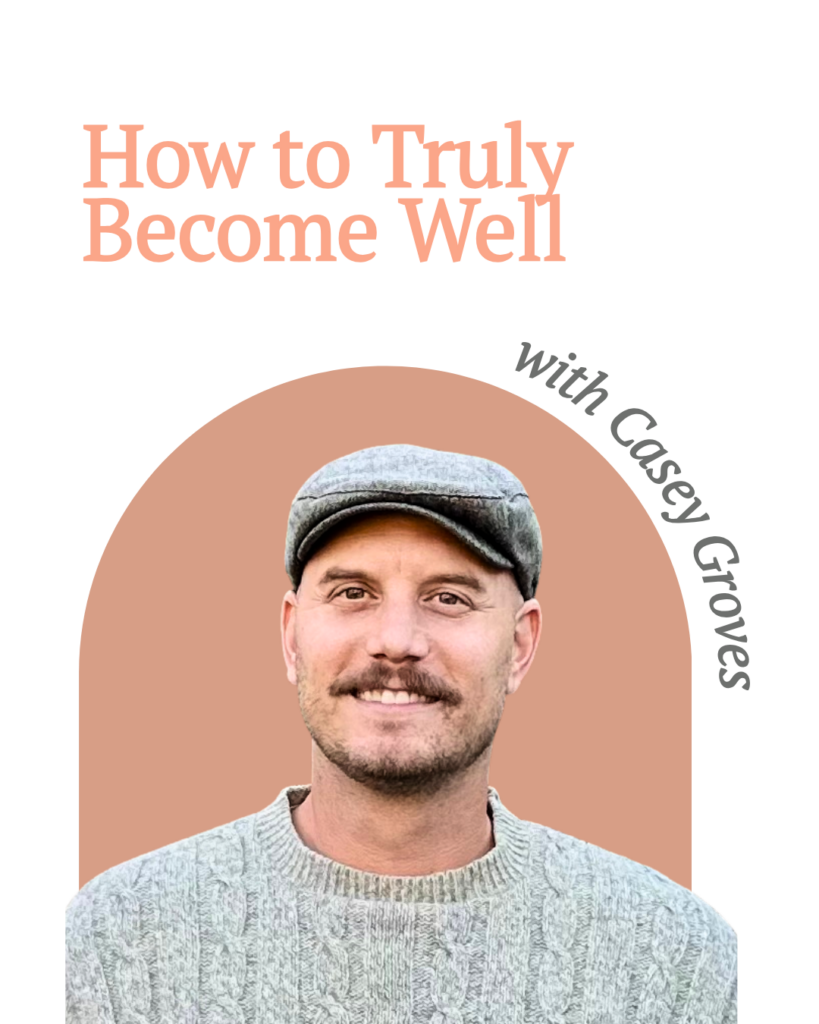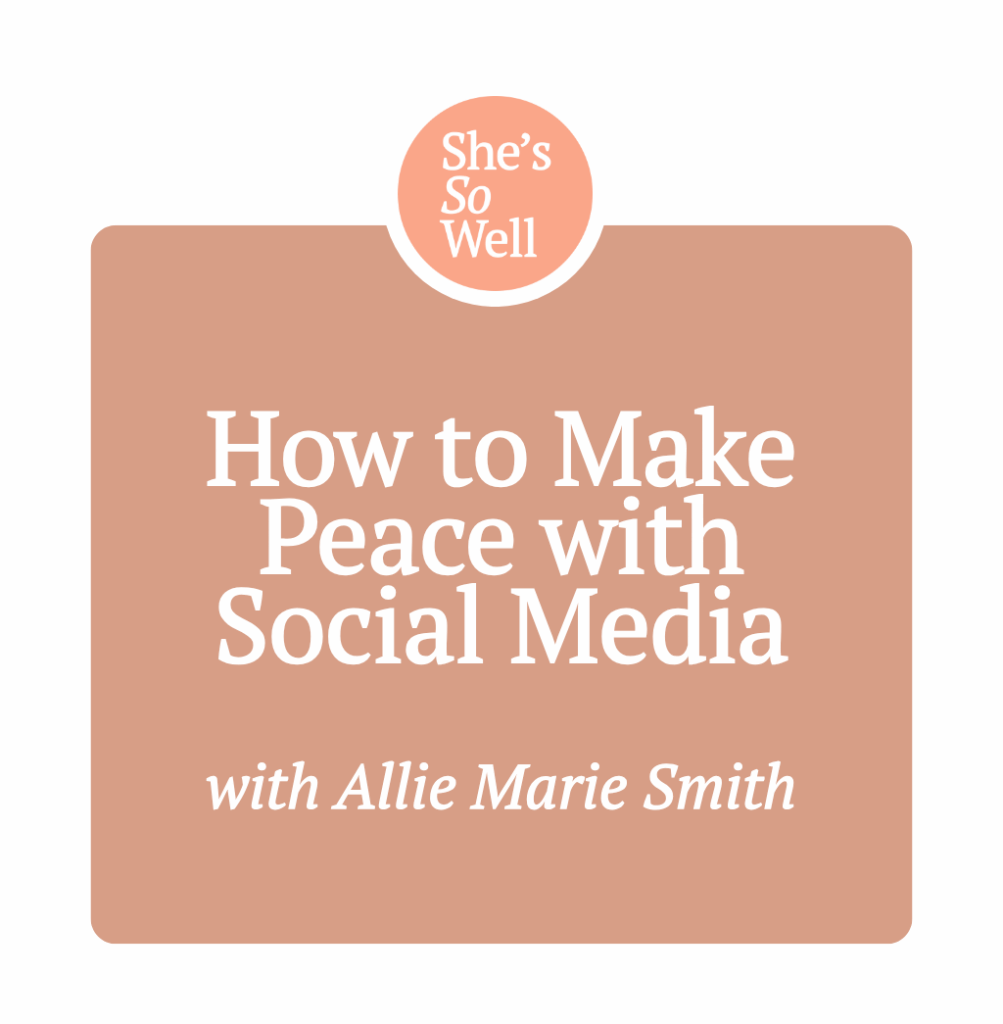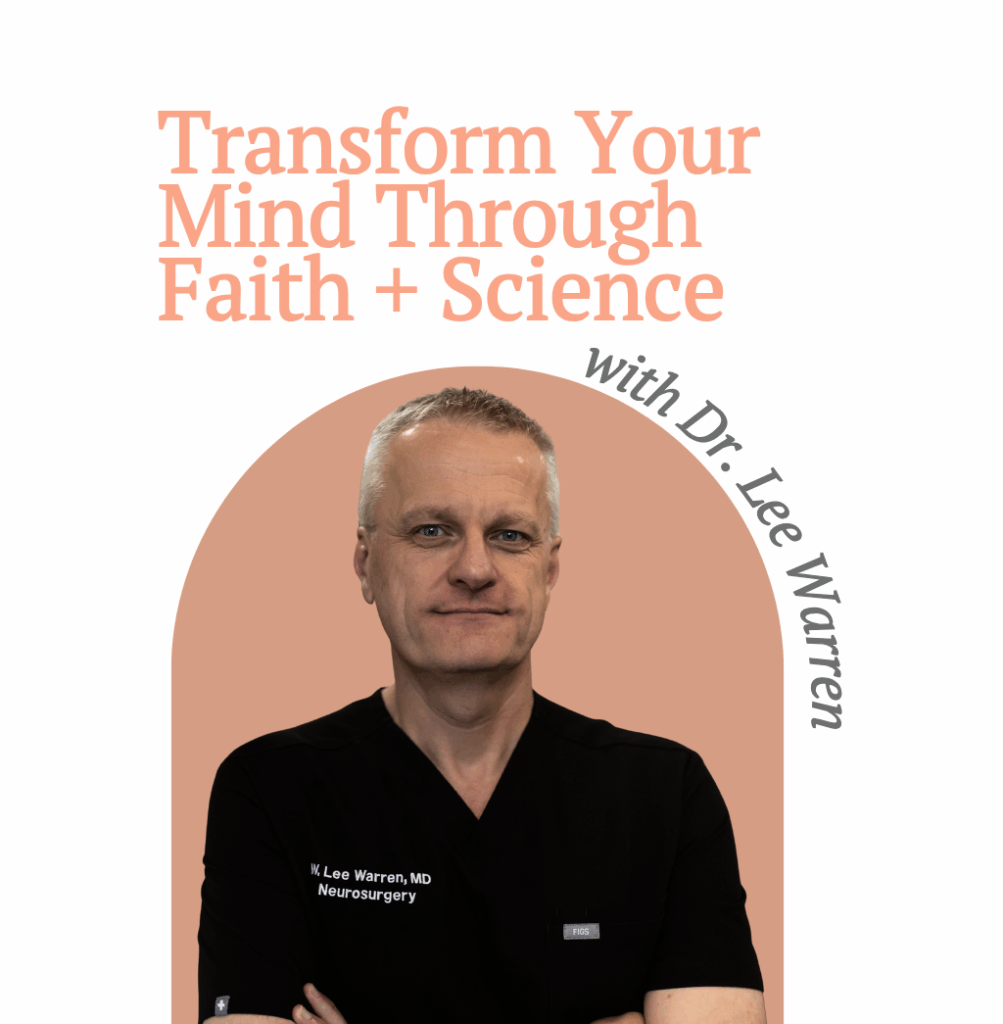Are your days filled with stress, busyness, and striving? Do you long to live a life of peace, but it feels impossible? Allie Marie Smith talks with author Ann Swindell who shares wisdom and practical tips for how to experience the peace of God. Our culture tells us we will find peace by escaping our lives or numbing out. However, the peace God gives us is available every moment of our lives. It is steadfast and unchanging through the highs and the lows of life. Learn how to cultivate a more tranquil life through habits and spiritual practices. Be encouraged so that you can experience unshakeable peace and have a soul at rest. Get the show notes here.
Wonderfully Made®, a 501(c)3 non-profit Christian ministry dedicated to helping teen girls and women know their God-given value and live spiritually, mentally and emotionally healthy lives.
—
Watch the episode here
Listen to the podcast here
How To Experience The Peace Of God — With Ann Swindell
Welcome back. We are so glad that you are a part of our community of girls and women here at the show. Before we dive in, if you are new to our community or our ministry, I am so glad that you are here. I want to invite you to learn more about who we are, our hearts for young women and the resources and events that we offer. We don’t want you to miss out on any encouragement that we share to uplift you. We want you to be the first to know about future events and opportunities so please go to our website, WonderfullyMade.org. We also have a gift for you there when you join our list. We’re excited to stay in touch with you and get to know you more.
We have a wonderful, lovely guest. She has contributed to our blog before. She’s a very gifted writer and an authentic soul. We’re talking with author Ann Swindell. We’re talking about what peace is and what our role is in cultivating the kind of life that invites God’s peace to dwell in our bodies, our minds and our spirits.
—
Welcome, Ann. Will you please tell us a little bit more about yourself? I’m so glad to talk to you. We’re so honored to have you here with us.
Thanks for having me, Allie. This is such a gift to be here with the community. I’m excited to talk about peace, which is something I’m super passionate about. A little bit about me is I am a Christ follower. I’m a writer. I speak at different women’s events and church events for women. I also have the privilege of being a wife and a mom. I’m a pastor’s wife.
A surprise to me is I’m a homeschooling mom. I never saw that one coming. I also run a ministry business called Writing with Grace where I teach other women how to write their own stories with power and beauty in a way that’s Christ-centered, also winsome and fun. As all of us do, I have all these different facets and areas of life that I am carrying, hopefully, by the grace of God.
You also wrote another book that you were sharing more about with me. I’m excited to dive into that. Will you briefly share about that book? It will speak to a lot of girls and women in our community. I’d almost love to have a whole other conversation about what you unpack there.
My first book which came out several years ago was called Still Waiting: Hope for When God Doesn’t Give You What You Want. It is my story combined with the biblical story of the Bleeding Woman. It’s about how we learn to trust God and walk in intimacy and even joy with him in these tender places of our lives where he hasn’t answered our prayers the way that we want him to. I share my experience with a chronic medical condition and beg the Lord to heal me for decades. I haven’t been healed but God has met me in that place of pain and confusion, honestly, about why he hasn’t answered this prayer.
It’s my story. It’s honest. It’s real. It’s also hopeful because I have experienced the tenderness and the love of Jesus in my waiting places. That’s my hope with that book too. If there are any of you reading that feel like you’ve been waiting on the Lord to answer a prayer or move in your life for a long time, this book will give you hope to know he hasn’t left you. He still sees you and is still at work in your story.
For many of us, peace sounds like a great thing. We’re like, “I could use more peace in my life, my thoughts and my home.” It can seem impossible or out of grasp because, in our lives, we have everyday responsibilities. There’s stress. We can experience some difficult experiences like what you shared with your chronic health condition, illness, loss and grief. Our lives are already very challenging as it is and then we live in this crazy broken, chaotic world.
In 2022 alone, we’ve brought through war. We’re seeing war unfold in the world and terrible natural disasters like what happened in Florida. We’re like, “Peace? I know Jesus talks about it but is it possible in my life?” I want to share a quote that you say in your book towards the opening. “The lives we think we want or even think we deserve rarely materialize the way we hope they will. We make it through one struggle only to face another.” Will you go ahead and share about your path towards finding greater peace and also what inspired you to write your book, The Path to Peace?
The Path to Peace was born out of a real season of anxiety and overwhelm in my life. I’m sure all of us on some level can relate these past few years to experiencing anxiety and maybe more stress than usual. For our family, it came out of a painful season where my husband, who’s a pastor, had a job down South and was fired for telling the truth. It was a painful experience and sad on a lot of levels. Since my husband’s a pastor, our community and his job were all combined. Our friends were at the church.
What happened is that overnight, we lost our main income, community and a real sense of earthly security all at once. We moved across the country to take this job less than a year before so I was like, “Lord, we thought we were following you here. What is going on?” Combined with that, my son who was still a baby at the time had some major medical issues that made every day full of minor medical emergencies. I would wake up every morning almost with heart palpitations. You wake up and it’s like your life comes back to you as you’re still in bed. I was like, “I don’t know how to deal with this.”
I remember looking at the bank account thinking, “How are we going to do this? How are we going to pay our mortgage and for groceries?” In that season, which went on and on for months because it did not end quickly, I remember realizing, “I love Jesus. I read the Bible. The word of God promises me peace,” but my day-to-day life is not lining up with that biblical promise. I am overwhelmed, stressed and full of anxiety. I felt like God was inviting me into a season of studying his word more intentionally to figure out how I could practically walk in his peace. I knew it was a promise. I just didn’t know why I wasn’t experiencing it.
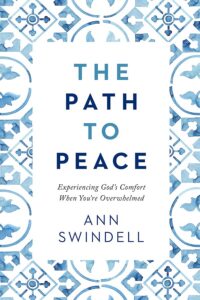
Peace Of God: God invites us into a season of studying his word more intentionally to figure out how we can walk in his peace.
It was out of that season that went into a season for me getting into the word and saying, “What does peace look like in the lives of the men and women in the Bible? What does peace look like in the promises that we see in the letters of the New Testament?” I felt like God was saying, “Let’s learn to walk and live this out.” The book was born out of that season and out of a time of pain, struggle and stress that the Lord used to help me grow in this area of wanting to be a woman of peace who wasn’t shaken by the circumstances ahead of me.
Thank you for sharing your story. It’s so interesting. Many of us girls and women can identify with the anxiety of the things that are surrounding us. It was similar to you. Your body is physically reacting to stress, anxiety and overwhelm. It’s not only in our minds but it can be in our bodies with the pressures we all face. We’re trying to do the best we can.
I love how you went on this hunt. You said, “God, this is a promise. Jesus, you promise peace that surpasses more understanding.” We’re going to get more into that. You said, “How come I’m not experiencing this?” That’s a question we can ask ourselves. We’re excited for you to walk us through this and your journey. What is the kind of peace we are talking about? You write about biblical peace. Will you unpack that for us? What are we talking about here?
I’ll start by saying what the world thinks peace is because it helps put the biblical truth in an even more beautiful light. The world would tell us, “You’ll find peace on a sandy beach with some Coke or Pepsi in your hand. You can get on the beach and get away from your life. You can escape from your life.” For some of us, that looks like scrolling online, binge-watching TV or pursuing things that are maybe good. Those are things like friendships but we’re looking to those friendships for more than they can give.
We have all these ways that the world says, “Pursue peace. Get out of your normal life. If you can escape from it, you’ll feel better.” Here’s the good news. The Biblical piece has nothing to do with escaping from our lives. It has everything to do with meeting Jesus in the middle of the lives that we already have. The Bible has a lot of different definitions for different types of peace. There’s the concept of peace between nations and people groups. There’s the idea of the Shalom peace. It’s this holistic type of piece. This is the part of the peace that I’m going to focus on. It’s what I focus on in my book. There’s peace with God and then there’s the peace of God.
Biblical peace has nothing to do with actually escaping from our lives. It has everything to do with meeting Jesus in the middle of the lives we already have. Share on XWhen you and I talk about the peace of God, it’s that experiential piece that we want to have in our day-to-day lives. It is that piece that passes all understanding. It’s the sense of having a soul at rest no matter what we’re facing. We can’t have the peace of God unless we first have peace with God. This is that biblical concept that we see in Romans 5:1. This is the peace with God that Jesus attained for us through his death and his resurrection.
Romans 5:1 says, “Therefore, since we have been justified by faith, we have peace with God through our Lord Jesus Christ.” Jesus made the way for us to have a relationship with God, the Father, through his death on the cross and his conquering resurrection. He’s the atoning sacrifice for our sins, as John 2:2 says. That is the best news ever because we’re no longer God’s enemies. We’re at peace with God but we can’t have the peace of God unless we know Jesus.
If there’s anybody reading who is like, “I’ve never experienced peace,” the first wonderful step for you is to come to know Christ as your Lord and Savior because he is the prince of peace. He, himself, is our peace as the scriptures say. Once you have that relationship with Jesus and you have peace with God, then you can experience this amazing, incredible peace of God. This is what Jesus talks about in John 14:27, which is one of my favorite verses. He says, “Peace, I leave with you. My peace, I give to you. Not as the world gives, do I give to you. Let not your hearts be troubled, neither let them be afraid.”
When we know the Savior and we have not only salvation but a relationship with him, then we can experience this soul at rest, which is peace. We know that peace is a person. It’s not a circumstance or something we have to get away from. Peace is Jesus himself so because of that, we can have access to that piece anytime and any day no matter what’s up the head.
It was so insightful how you started by contrasting the peace of God with the peace the world offers us. I found it so interesting how you talked about different kinds of peace because that’s not something I was familiar with. I think of it as this abstract idea but you put words into the different kinds of peace. Can you talk a little bit more about the Shalom peace?
I won’t dive into it too much in the book because there’s not enough space. Shalom is this concept of holistic peace, like body, mind soul, spirit and relational that we are people who are at peace with others. In some cultures, they greet each other by saying, “Shalom. Peace to you. Peace be upon you,” and I love that. Instead of saying, “Can you believe what’s going on,” what if our first inclination was to say, “Peace beyond you, sister. God’s peace be with you.” That’s that shalom peace. It’s this holistic peace. This isn’t necessarily the biblical idea but what I think of it is feeling from the top of my head to the tips of my toes that God’s peace is upon me because I am right with him through Christ.
First, we’re given this beautiful invitation to have complete peace with God by inviting Jesus to reign in our hearts. We’re no longer enemies of God. We have been forgiven and made new. That’s peace with God. You talk about the peace of God, which you relate to John 14:27 which says, “My peace, I give to you.” It’s a different kind of peace that surpasses all understanding. One thing in the book you write about is you describe peace as a soul at rest. Will you talk more about what this means and how we get there in our day-to-day lives?
Realizing that it’s even possible to have a soul at rest is something that for some of us seems hard to imagine. We constantly feel anxious and stressed out. Peace is possible. Having a soul at rest no matter what circumstance you’re in is possible. That’s because no matter what you’re going through, Christ’s peace is available to you.
The world’s version of peace is escaping from your life. The world’s version of peace relies on easy circumstances, lack of emotional distress and lack of relational tension. The reality is life is always going to be full of some kind of distress, relational tension and pain until Christ returns. We live in a broken world. What I love is that when Christ is talking to his disciples in John 14 and he’s saying, “Peace, I leave with you,” he knows that he is giving them the presence of his Holy Spirit. He’s giving them the greatest gift. In the scriptures, at times, the Holy Spirit is referred to as the spirit of Christ. This is the presence of Jesus that is with us always. We’re never alone. We never have to face any trial, temptation or struggle on our own.

Peace Of God: The Holy Spirit is referred to as the Spirit of Christ. This is the presence of Jesus with us always. We’re never alone. We never have to face trial, temptation, or struggle on our own.
Think of Jesus saying in the Psalms, “Even if father and mother forsake me, the Lord will take me in.” The Holy Spirit is that beautiful picture of the Lord taking you into his family. We can have peace because we have the presence of Christ with us always. It’s a beautiful promise but we then have the choice to live it out through the actions that we take and the choices that we make.
Since we have the Holy Spirit with us, we can be at peace no matter what’s happening in our lives. That’s a great encouragement that no matter what’s going on, you’re not alone. The Lord is with you. He’s the prince of peace so you can rely on him and not even your feelings sometimes. We have to rely on the truth of Christ when we’re feeling overwhelmed.
Peace is a promise. Promises of God prevail and they are unchanging. They’re accessible to us. What do you think our role and response are? How do we get to this place of having the peace of God in our lives, bodies, minds and spirits? How do we cultivate a soul that is at rest? What is our role in this?
It’s important for us to acknowledge that the promises of God are there and they’re true but we also get to link hands with him to see those play out in our lives. What I love too about experiencing God’s peace is the way that we experience his peace is very simple, although it’s not easy as with most things in the Lord. He’s made it clear but it might not always be easy.
The first practical thing that we get to do is be in the word of God. We get to read the word of God. There is a beautiful promise in Isaiah 26:3 that says, “You keep him in perfect peace, whose mind is stayed on you because he trusts in you.” When our minds are stayed, affixed and focused on the word of God, we will have peace. It’s a promise that we can cling to. It doesn’t mean that we’re immediately going to feel it.
I heard a pastor years ago say, “Sometimes, reading the Bible feels like eating vegetables that maybe you don’t want to eat but it’s going to make you healthier and stronger.” That’s what the word of God does. As we ingest it and immerse our brains in it, we become transformed more into the image of Christ. The more Christ-like we are, the more peace we’re going to experience. If you’re feeling overwhelmed or stressed out, go to the word of God. Read it and ask the Holy Spirit to give you more of his peace as you read his truth. That’s the first thing I would say.
I want to ask you right there. Often, we’re like, “Read your Bible. Spend time in the word of God.” It is so true. That is number one. For some people reading, maybe they don’t know where to start or they’re like, “That seems so overwhelming.” I was eighteen when I first started reading the Bible on my own. To someone whom they don’t know where to start, if they were to memorize one verse that you think will help them cultivate a soul that is more at rest, do you have a verse in mind? Maybe it’s one that we put on a Post-it note, look at it and remember it.
This is hard but I’d probably either say Philippians 4:6-7, which talks about prayer, which is another way that we can find peace. I’ll read that quickly because this is a beautiful one and has ministered to me many times. It says, “Do not be anxious about anything but in everything by prayer and supplication with thanksgiving let your request be made known to God. The peace of God, which surpasses all understanding, will guard your hearts and your minds in Christ Jesus.”
What a beautiful promise and also a call. The Bible is telling us, “Don’t be anxious. Take it to the Lord. He wants to hear what’s going on in your heart.” As you do, the peace of God is going to guard your heart and your mind. God knows our emotions, brains and bodies. We need his peace. I’d say probably Philippians 4:6-7. We’ve already talked about John 14:27 but that’s also an incredible one to remember.
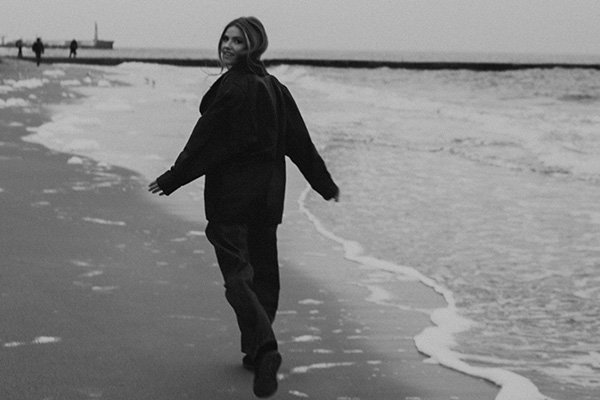
Peace Of God: The Bible tells us not to be anxious but to take it to the Lord. He wants to hear what’s going on in your heart. And as you do, the peace of God will guard your heart and mind.
Thank you for that. Let’s keep our conversation going about our part. What else can we do to cultivate this greater peace in our lives?
I talked about Philippians 4:6-7 but prayer. I think of the example that when I have an issue at a restaurant or a store, I ask to talk to the manager and the person in charge and say, “Here’s what’s going on. Can it be made right?” Yet, a lot of times in my life, when there are these problems, I forget to take it to the one who’s in control and say, “God, here are these issues. Here’s what I’m worried about.”
As an encouragement to anyone reading, your prayers to God don’t have to be fancy and long. Sometimes, all I have for Jesus in a hard moment is, “God, help me. Lord, help me. Be with me.” That is wonderful. God’s not asking for us to be fancy or long-winded. He just wants us to remember that he’s there and to call out to him. There’s a beautiful connection that happens to God in prayer.
If you’re in a season where praying feels hard or difficult or where reading the Bible feels hard, this would be my third encouragement. We find peace through the community. Often, our trials and struggles make us feel isolated. The devil wants us to feel alone. He wants us to feel like we’re the only ones with this issue, trial or struggle. He wants us to feel like we’re a burden. If you’re reading this, you’re not a burden. You are a gift. Your life is a gift. You were made for a biblical, godly community because none of us can do life on our own. We can’t. We’re not meant to.
I won’t read it but verse Corinthians 12:24-26 talks about this beautiful picture of the church being the body of Christ and how we help those who are weaker. We rejoice with those who are feeling stronger. While you might not have a biblical community, that might feel impossible to you. My encouragement would be to reach out. You might have to go first. You might have to ask a friend if they’d be willing to meet for coffee and do a Bible study together. You might have to ask a friend if they’d be willing to pray for you if you’re feeling low. It is a gift because, in a couple of weeks or a couple of years, you’re going to be the one who’s needed to pray for someone else or read the word over someone else and help each other walk in the peace of God.
One thing I remember you writing about is obedience and how obedience leads to peace. When we hear the word obey or obedience, it sounds super constrictive and not fun. The way that I have learned to see obedience is by accepting God’s invitation to a better life. It’s to live the kind of life that he desires for us because his precepts, his guidelines and his way lead to peace. It protects us from unnecessary drama and distraction. That could look like putting the party days behind you. You don’t have to worry about drunk driving or regrets. That can be one example. Let’s talk a little bit about how obedience leads to peace.
In our culture, obedience seems like a bad word. They’re like, “I don’t want to obey anybody else. I’m the captain of my own ship.” Culture is screaming at us, especially at women. They’re like, “You don’t need a man or anybody else. Be your own boss. Do your own thing.” It’s so tempting to be like, “I do want to do this my way.”
The reality is scripture is so evident time and time again that disobedience to God ultimately leads to spiritual and physical death. Obedience to God leaves leads to abundant life, eternal life. Part of what I did in The Path to Peace is it is set up as a devotional. There are eight different sections and each of those sections follows the life of a biblical man or woman and how they experienced God’s peace in the middle of wild and difficult circumstances.
I write about Ruth who was a foreigner in a foreign land. She was a widow. She ended up having to go out into the field and beg for crops for food. How God met her in her story came about through her obedience to God. Even when she didn’t even fully understand who the God of the Israelites was, she was willing to follow him and obey his ways.
I write about Mary, the mother of Jesus. Can you imagine? Some scholars think she was maybe as young as thirteen years old when the angel came to her and told her, “God has chosen you to carry the son of God.” Her response is an incredible, immediate, “I am the Lord’s servant. Let it be to me according to his will.” We don’t often think about the cost to her. She would’ve looked like a young, unwed, single mom. In that honor and shame culture, it would’ve been extraordinarily painful. Joseph almost divorced her until God intervened.
We have these pictures throughout scripture of men and women giving God these obedient yeses in the midst of difficult choices. Yet, we also see that their yes to God or obedience to him in the midst of hard things led to an abundant wonderful life. Maybe it didn’t always look wonderful by the world’s standards but was full of fruitfulness, joy and ultimately, salvation.
I think of Ruth and Mary Magdalene. I think of Sarah, the wife of Abraham. These are all these women who had to give hard yeses of obedience in places where I’m sure their flesh did not want them to but it bore great fruit, not just for them but for generations of people after them who learn to follow the Lord because of their obedience.
Sometimes, doing those hard things and taking that step of faith does lead to the fruit of peace.
It’s a good thing because these women’s obedience led to their joy and peace even in circumstances that nobody thought they could be peaceful in.
Obedience to God can lead to joy and peace, even in circumstances in which nobody thought they could be peaceful. Share on XI’ll start closing our conversation by talking about maybe some more practical rhythms and habits. We talked about reading the scripture and prayer. We all know these things. Let’s talk about more specific inner day-to-day routines. We can talk about how God invites us to a day of rest through the Sabbath. Are we going to receive that invitation? For sure, that’s going to cultivate peace. I’d love for you to share rhythms, habits and routines in your life that cultivate an environment that allows you to greater experience the peace of God. I’d love to share some of mine in case they’re helpful to any of our audience.
For me, apart from daily Bible reading and prayer, one of the things that we do as a family that I love is we have a monthly hymn that we choose to sing and memorize. We’re not in a church that sings hymns but I have gone back to reading and learning about some of these old hymns. A lot of them are packed with scripture. They’re packed with beautiful theological truths.
I have found that, as a family, as we learn these hymns together and sing them together around the breakfast table or when we’re holding laundry, they get into our hearts and help us remember the character of God. They help me point my soul to his goodness no matter how I’m feeling that particular day. A lot of times, if I’m starting to feel worried about something or anxious, those hymns come back to mind.
You can do that with any worship song. I love singing these songs that saints have been singing for hundreds of years feeling like I’m participating in the history of the church. A Mighty Fortress is our God written by Martin Luther is over 500 years old. There have been saints throughout history singing these hymns. It helps to grow my faith.
For me, one of the things that help me cultivate more peace is intentionally managing my input. I’m very sensitive, the way my brain is wired, to noise, news and social media. I have a lot of disciplines around social media that I practice. I don’t keep it on my phone. I don’t look at it until 10:00 AM and I stop later in the day. There are two practical things I want to share in case they are encouragements to any of our readers.
One, I do watch the news a little bit but I subscribe to a newsletter called The Pour Over. They share a lot of current events happening throughout the world but they send it in an email. They always share a verse to counteract that current event. That helps me stay informed without seeing everything that’s happening all across the world. It’s not natural for us. It’s not natural to know about every single conflict or natural disaster, what everyone is eating for breakfast or what they’re wearing that day. If we can manage our inputs, that brings so much peace.
I’ve shared so much about this before. It’s scripture meditation. I use an app called Abide. There are several different ones but it uses instrumental music. It takes you through a verse. They have topical meditations about anxiety, depression or relationships. Anytime I’m overwhelmed or anxious, I’ll grab my phone and listen to a 5-minute or 10-minute devotional. That helps me.
I want to share some practical things along with the idea that we have this agency. There’s so much more we can talk about like journaling, music and counseling. You talked about community and using our hands. I love that verse in Thessalonians that says, “Live a quiet life, mind your business and work with your hands.” That’s creativity. This idea of constant consumerism can cause more envy and comparison that does rob us of our joy and our peace. Do you have any closing thoughts about peace that you want to share with us before we dive into our last question?
If you’re reading this and you’re like, “That’s great for everybody else,” it’s for you too. God has peace for you in the middle of your very difficult situation. If you cry out to him and go to him, he will give you exactly what you need.
If you could go back and give your younger self some words of wisdom, how old would she be? What would you tell her?
I would go back to my sixteen-year-old self. I struggled with a lot of body image issues, especially in high school. I would tell her with great hope in my heart, “The size of your pants doesn’t determine God’s call on your life or the size of clothes that you wear or how you look. God loves who you are. He’s got a distinct purpose for your life. As long as you stay in step with him, he will see it fulfilled.”

Peace Of God: God loves who you are and has a distinct purpose for your life. As long as you stay in step with him, he will see it fulfilled.
The second thing along with that would be that Jesus is worthy. He’s worthy of all the hard choices you have to make between now and then and the hard choices of not going along with the crowd and choosing him over other things. He’s more than worth it. He’s going to give you more joy in Jesus than you ever could have imagined.
A life with God is the greatest invitation. Thank you so much for being here, Ann. We look forward to keeping in touch with you.
Thanks, Allie. It’s been a joy.
Important Links
- Ann Swindell
- Writing with Grace
- Still Waiting: Hope for When God Doesn’t Give You What You Want
- The Path to Peace
- The Pour Over
- Abide
About Ann Swindell
 Ann Swindell and her writing have been featured widely by The Gospel Coalition, Risen Motherhood, (in)courage, Proverbs 31 Ministries, and other publications. She is the owner of Writing with Grace and holds an MA in Writing from DePaul University and an MFA in Creative Nonfiction Writing from Seattle Pacific University. Ann lives in West Michigan with her pastor-husband and their children.
Ann Swindell and her writing have been featured widely by The Gospel Coalition, Risen Motherhood, (in)courage, Proverbs 31 Ministries, and other publications. She is the owner of Writing with Grace and holds an MA in Writing from DePaul University and an MFA in Creative Nonfiction Writing from Seattle Pacific University. Ann lives in West Michigan with her pastor-husband and their children.

